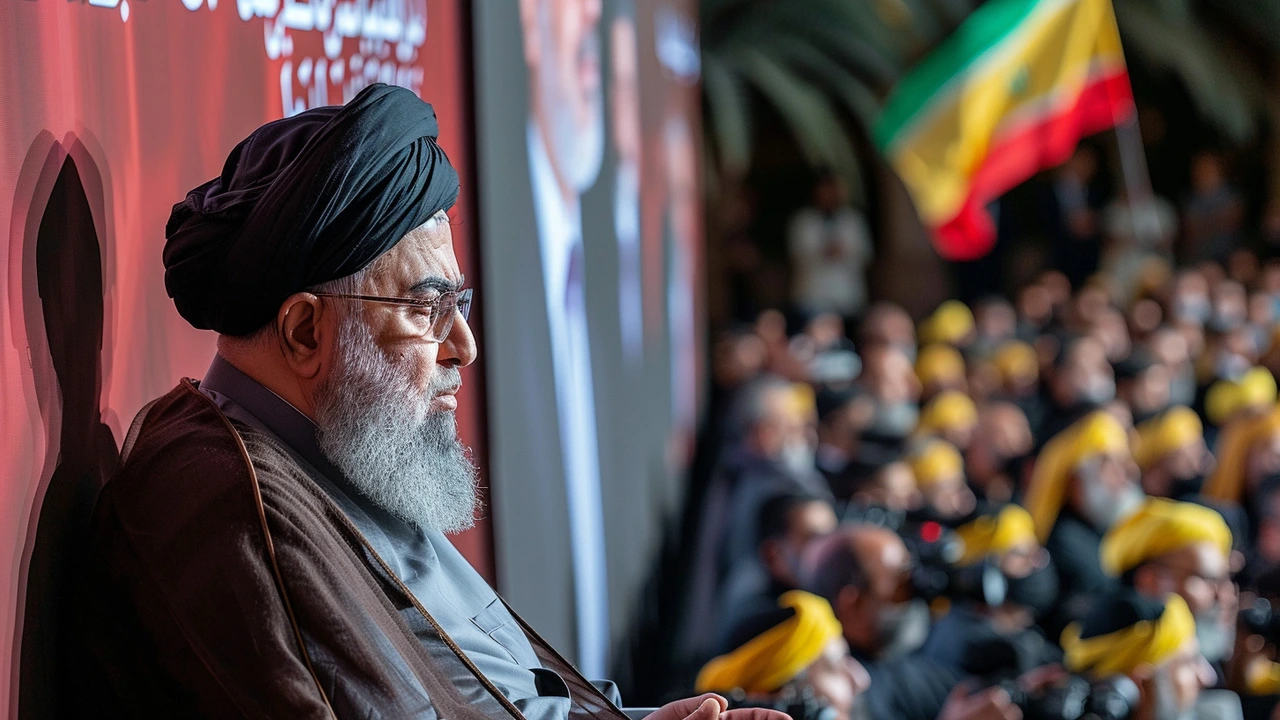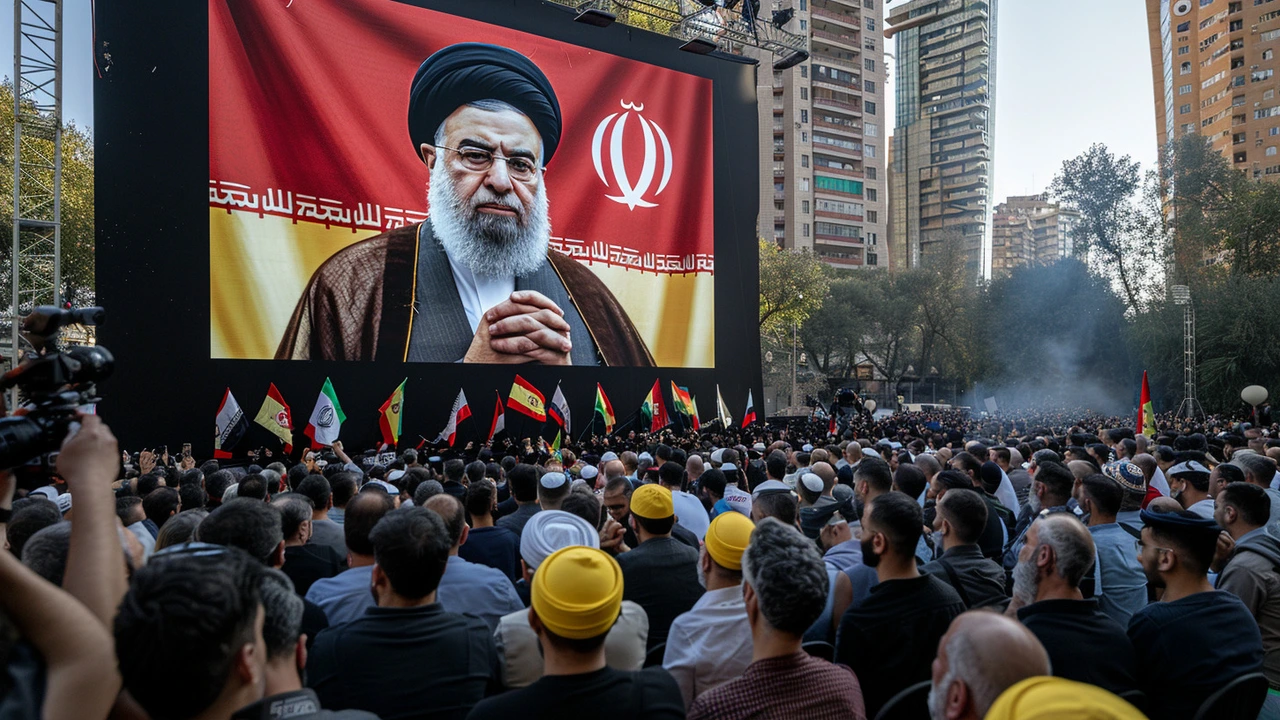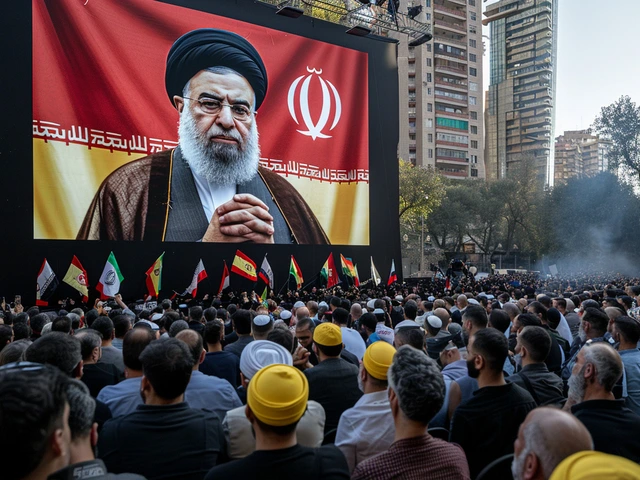Cyprus Stands Firm on Neutrality Amidst Hezbollah's Bold Threats
Cyprus Reasserts Neutrality
In a time marked by rising tensions in the Mediterranean, Cyprus has found itself at the heart of a geopolitical storm. Hezbollah’s recent threats to Cyprus have prompted a robust response from the island nation, keen on maintaining its stance as a neutral and peaceful actor in the region. Cypriot officials have categorically denied any involvement in potential conflicts, especially relating to Israel's military engagements, a move that signifies their commitment to regional stability.
Cypriot government spokesperson, Konstantinos Letymbiotis, made it unequivocally clear that the nation's policies are geared towards fostering peaceful diplomatic relations. He emphasized that Cyprus is neither involved nor plans to be involved in any military conflicts. This declaration aligns with the nation's historical stance of neutrality and its strategic emphasis on acting as a bridge for peace in a fraught geopolitical landscape.
Hezbollah's Stance and Threats
Hezbollah's leader, Sayyed Hassan Nasrallah, recently issued stern warnings to Cyprus, making headlines across the globe. Nasrallah asserted that if Cyprus were to allow Israel to utilize its airports and bases for attacks against Lebanon, Cyprus would be considered an active participant in the conflict. He warned that Hezbollah possesses the capability to strike anywhere within Cyprus, using missiles and drones, thereby placing the entire nation under potential threat.
These threats underscore the delicate position Cyprus inhabits within the broader geopolitical tapestry of the Eastern Mediterranean. The looming possibility of being targeted puts additional pressure on the Cypriot government to navigate its foreign relations with extreme caution, balancing between maintaining regional friendships and not provoking powerful adversaries.
Cyprus and Its Diplomatic Ties
The evolving relationship between Cyprus and Israel has been a focal point of interest in recent years. While Cyprus has officially maintained a neutral stance, its collaboration with Israel on military drills and joint exercises has not gone unnoticed. Professor Hubert Faustmann, a noted historian and political scientist at the University of Nicosia, pointed out that this is possibly the first significant challenge Cyprus faces over its increasingly apparent pro-Israeli tilt.
Faustmann’s observations shed light on the intricate balancing act Cyprus must perform. Any overt move to support Israel militarily could severely jeopardize Cyprus’s relationships with neighboring countries, particularly Lebanon. This underscores the nuanced diplomacy that Cyprus must engage in to sustain its strategic position and uphold its long-standing peace-oriented image.
The Pillar of Peace in the Region
Reiterating its commitment to peace, Cypriot President Nikos Christodoulides reaffirmed the nation’s role as a 'pillar of peace.' Highlighting Cyprus's humanitarian efforts, Christodoulides pointed to the establishment of a sea corridor to aid Gaza. This initiative is indicative of Cyprus's broader strategy to be seen as a mediator and humanitarian actor, rather than a participant in conflicts.
The significance of such humanitarian roles cannot be understated in the context of regional tensions. Cyprus's dedication to peaceful initiatives is not only vital for its national image but also for maintaining its diplomatic relations with multiple key players in the region. In an area where alliances and enmities are often fluid, a consistent message of peace and diplomacy stands out.

Impact on Cyprus’s Geopolitical Strategy
In the face of such geopolitical tensions, Cyprus must carefully craft its strategy. The ever-evolving dynamics in the Eastern Mediterranean require a deft touch, with an acute awareness of the regional power balances. By continuing to emphasize neutrality and humanitarian aid, Cyprus aims to solidify its role as a key mediator. This approach can help alleviate pressures from entities like Hezbollah while simultaneously nurturing its relations with countries like Israel and allies in the West.
However, the balance is precarious. Any misstep, such as allowing military usage of its facilities, could provoke severe backlash. The potential repercussions of such actions could span far beyond immediate physical threats, impacting economic ties, diplomatic relations, and Cyprus’s long-term strategic interests.
The Future of Cypriot Foreign Policy
As Cyprus navigates this challenging landscape, the future of its foreign policy will be closely watched. The nation’s commitment to neutrality, amid growing threats and alliances, will be a focal point for analysts and policymakers alike. Cyprus’s approach could serve as a blueprint for smaller nations worldwide that find themselves amidst powerful geopolitical tensions.
Ultimately, maintaining its image as a peace-oriented nation allows Cyprus to play a critical diplomatic role, potentially diffusing tensions and fostering dialogue. This path, mired with challenges, offers a vision of proactive peacebuilding, which could serve as a stabilizing force in a historically volatile region. Through its steadfast commitment to neutrality, humanitarian aid, and diplomacy, Cyprus can continue to reinforce its standing as a beacon of stability amidst the turbulence.
The unfolding dynamics will test Cyprus’s resolve and strategic acumen. Yet, with careful diplomacy and steadfast adherence to its principles, Cyprus can navigate these complex waters, fostering peace and acting as a linchpin for regional stability.







